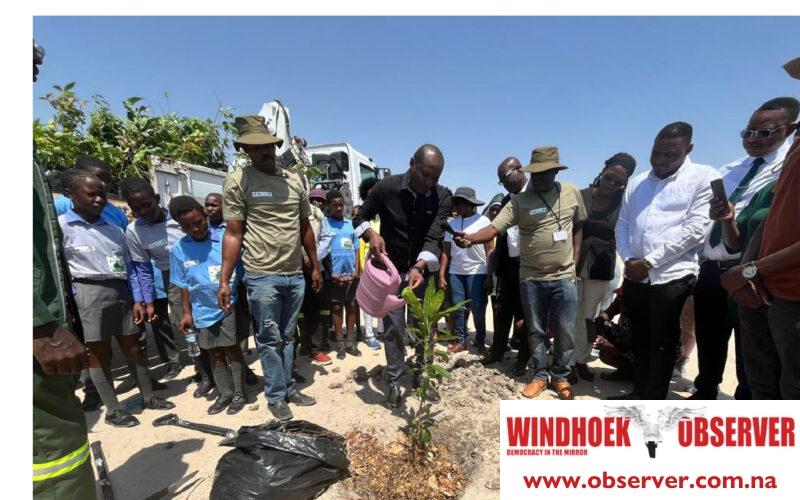Niël Terblanché
Namibia celebrated Arbor Day with a special event held in Oshakati under the theme “Forest and Innovation: New Solutions for a Better World.”
The occasion on Thursday, hosted by the Ministry of Environment, Forestry, and Tourism, emphasized the vital role of technology and innovation in forest conservation while addressing deforestation and habitat degradation.
The minister of environment, forestry and tourism, Pohamba Shifeta, stressed the importance of preserving Namibia’s green spaces amid urban development.
He urged property developers to incorporate tree planting in urban planning to mitigate the loss of indigenous tree species while towns like Oshakati continue to expand.
Shifeta also encouraged replacing trees lost during construction with double or triple the number, a practice crucial to maintaining ecological balance.
He reiterated the need for active participation in reforestation efforts.
The minister explained that the country is significantly affected by deforestation, with nearly 2.5 million hectares of land lost to wildfires each year.
“The reliance on wood biomass for energy in rural areas contributes to the unsustainable depletion of forests,” he said.
He said that against this backdrop, Arbor Day serves as an important reminder of the need to protect and expand the country’s forest cover.
This year’s Arbor Day has a particular focus on promoting tree planting in urban settings, such as residential areas, streets, and parks.
Involving local communities, particularly learners, in tree-planting initiatives is critical to raising awareness and ensuring that younger generations understand the importance of environmental conservation.
“When a learner is made aware, chances are that information will be passed on to the parents and their peers,” he said.
The minister said that the Tree of the Year for 2024 is Salvadora persica, commonly known as the real mustard tree, or Omunghadu in Oshiwambo.
“This species holds significant cultural and medicinal value and is used for both human and livestock consumption. The emphasis on indigenous tree species highlights Namibia’s commitment to preserving its cultural heritage while addressing environmental challenges,” he said.
During the event, 780 tree seedlings were distributed to the residents of Ongwediva and Oshakati as part of the ministry’s ongoing efforts to promote reforestation.
According to Shifeta, the ministry has set an annual target of distributing 20 000 tree seedlings, a goal made possible through partnerships with local authorities and international organizations such as the Global Environment Facility (GEF) and the United Nations Development Programme (UNDP).
He said that while Namibia faces the challenges of deforestation, climate change, and urbanization, Arbor Day serves as a very important platform for raising awareness and promoting sustainable forestry practices.
“We are committed to increasing the country’s forest cover and ensuring that trees continue to play their vital role in providing oxygen, supporting biodiversity, and maintaining ecological balance for future generations,” he said.




